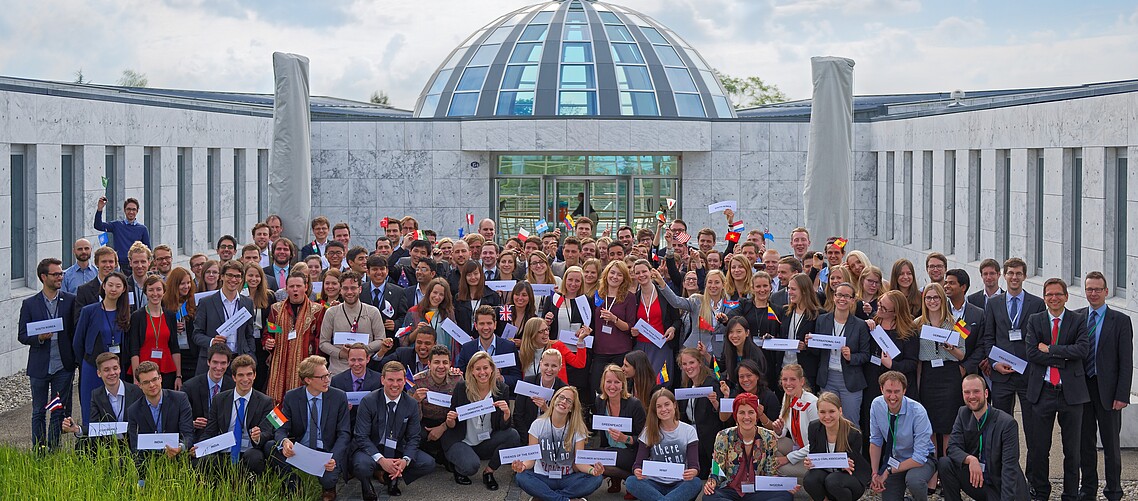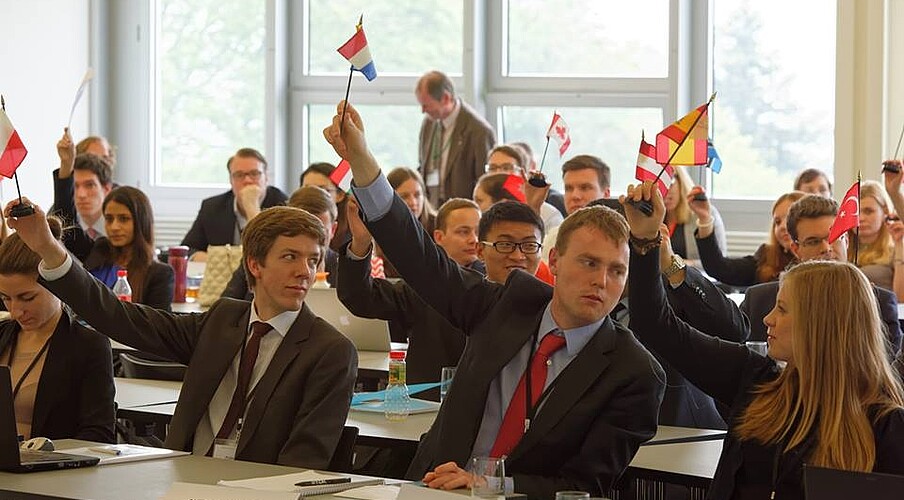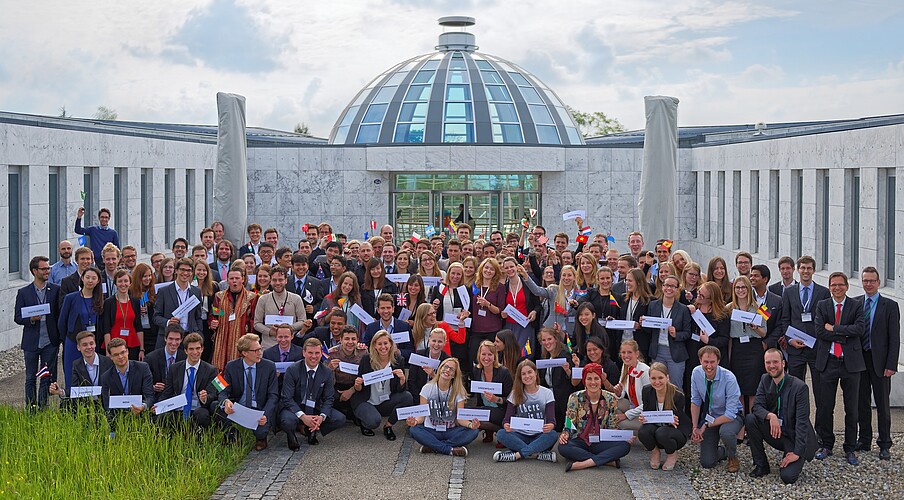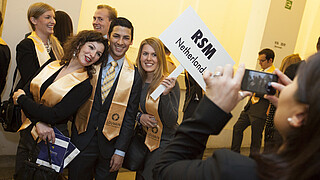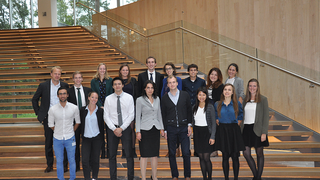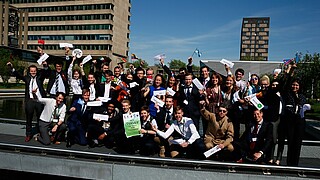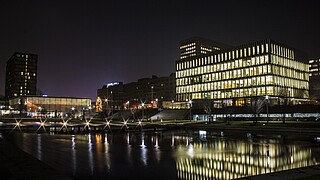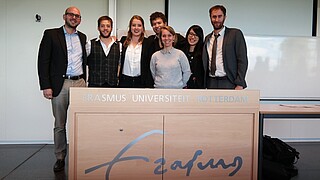During a two-day simulation of the UN climate negotiations (Model UNFCCC), 34 students from RSM and 71 students from across Europe met to play government, environmental group and industry representatives. The international teams were assigned to represent nations from China to Bhutan, and the students’ roles included organisations such as Greenpeace and the World Coal Association. The event was the culmination of CEMS master programmes from international business schools that have taught the students about the multiple aspects of climate change, and also taught them important skills in negotiation and strategy. From RSM, attendees were students from the MSc International Management/CEMS and the MSc Global Business & Stakeholder Management who had undertaken a joint elective. “Results came when students were prepared to think innovatively about countries’ shared interests, and were able to make progressive agreements,” said RSM course leader, Assistant Professor Steve Kennedy.
“All students from all schools were successful,” said Dr Kennedy. “It was a great group achievement to negotiate some really difficult and detailed material, and to influence the outcome.”
The RSM students achieved legally binding group targets for greenhouse gas reductions based on a new classification system. Targets would achieve the globally negotiated 2° C warming above pre-industrial levels.
They also successfully negotiated for:
- an innovative new technology transfer platform to facilitate technology and know-how from developed to developing nations
- a revamp of emissions trading through replacing the Clean Development Mechanism with a new scheme
- agreed funding and mechanism to stop and reverse deforestation
- established definition and protocol for managing refugees from climate change.
The final and detailed protocol featured global and inclusive targets to limit greenhouse gases, funding for nations to adapt to changing climate, a creative platform for transferring technology and a new-look emissions trading scheme. Dr Kennedy said: “Our students have been able to achieve something where world leaders have so far failed. Negotiations were tough for the students, yet they were relentless in their efforts to reach consensus and a legally-binding agreement.
“Negotiators at the international conference in December could learn something from the way they achieved this, in particular approaching negotiations with a problem-solving mindset instead of one of conflict, and keeping in mind that the consequences of climate change affect all nations.”
The 34 RSM students who took part in the event at the University of St Gallen are participants of the MSc Global Business & Stakeholder Management and the MSc International Management / CEMS programmes at RSM.
